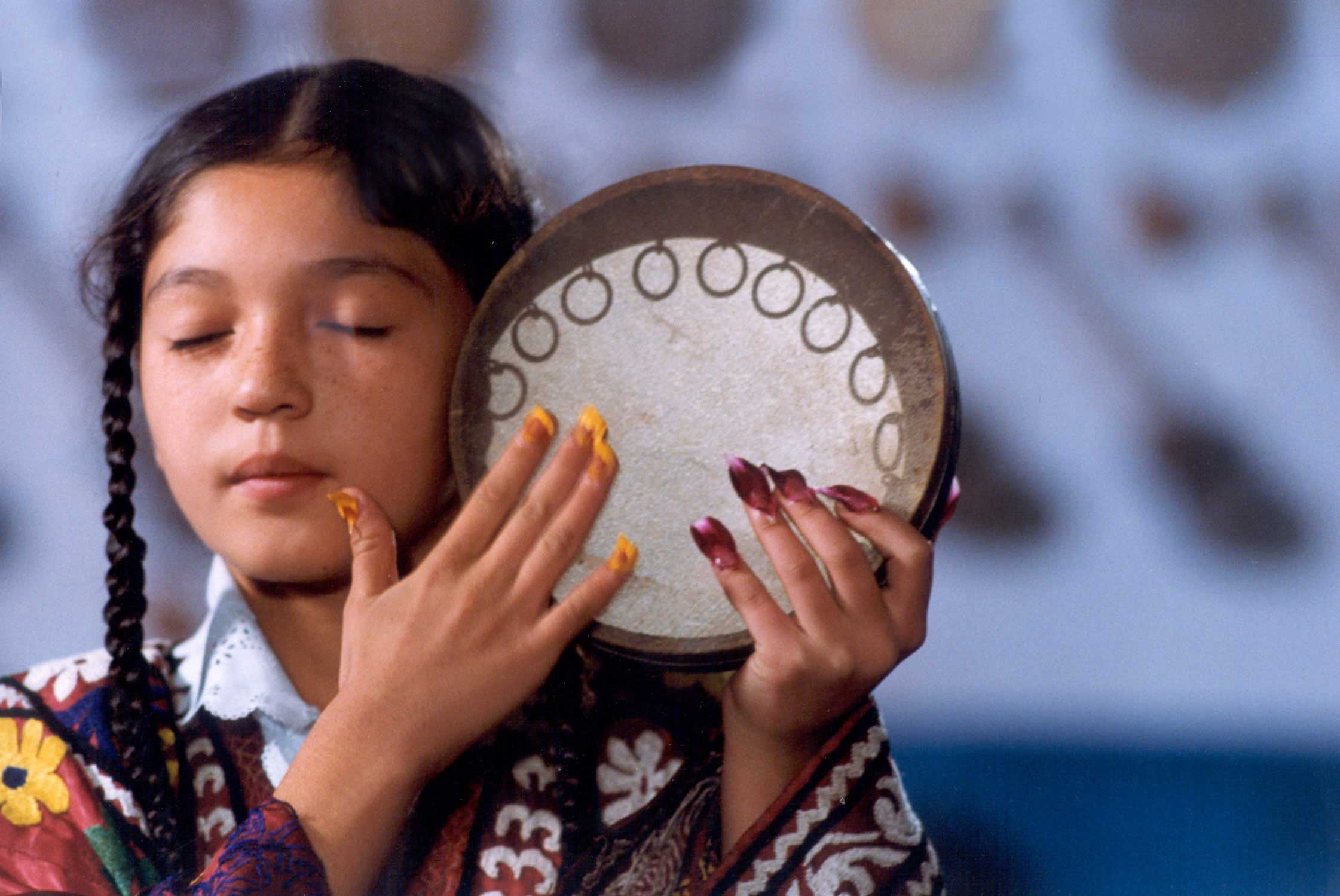the silence mohsen makhmalbaf – makhmalbaf moment of innocence
Silence
Silence, Synopsis: Korshid whom is a blind boy tunes new music instruments because of the sensitivity of his ears, Everyday he goes to the workshop from home with a bus, Her mother has advised him to put his finger in his ear so that the attractive sounds that he hears on his way do not attract him and cause him to lose his way,
the silence mohsen makhmalbaf
The Film Sufi: “The Silence”
Featured in Mohsen Makhmalbaf: The Poetic TrilogyOrder in the UK: http://bit,ly/2rNWLj6 Order in the US: http://bit,ly/2N1VYEJThe Silence tells of Khorshid,
· Le Silence est un film réalisé par Mohsen Makhmalbaf avec Tahmineh Normatova, Nadereh Abdelahyeva, Synopsis : L’histoire de Khorshid, un garcon aveugle de dix ans qui vit avec sa mère dans un
3/57
Mohsen Makhmalbaf
The Silence Persian: سکوت , romanized: Sokut, Tajik: Сукут, romanized: Sukut is an Iranian–Tajik film from 1998, It is directed by Iranian film maker Mohsen Makhmalbaf,The movie is about a little boy who has the onerous task of earning money for his family, but is always enchanted and distracted by music,
The Silence – Twin Cities Iranian Culture Festival
· About Press Copyright Contact us Creators Advertise Developers Terms Privacy Policy & Safety How YouTube works Test new features Press Copyright Contact us Creators
Auteur : Majid Zayani
THE SILENCE Sokout, B, Annonce, Réalisé par, Mohsen Makhmalbaf, Iran, Tadjikistan, 1998, Drame, Musique, 76, Perse, Anglais, Turc , Synopsis, Khorshid, a young blind boy from Tajikistan, earns rent money for his family by tuning rare instruments but becomes enraptured by the sonorous music he hears on his way to work each day, Notre opinion, A transcendental tribute to the possibilities of
Le Silence film 1998 — Wikipédia
The Silence 1998 film

Le Silence en persan : سکوت Sokout est un film iranien réalisé par Mohsen Makhmalbaf sorti en 1998
The Silence Original Trailer Mohsen Makhmalbaf 1998
Mohsen Makhmalbaf, Writer: Gabbeh, Mohsen Makhmalbaf is known as one of the most influential filmmakers and founders of the new wave of Iranian cinema in the world today, Many of his films like Salam Cinema, A Moment Of Innocence, Gabbeh, Kandahar and The President have been widely well received across the globe and have brought him over 50 international awards from the prestigious
Mohsen Makhmalbaf — Wikipédia
Mohsen Makhmalbaf Editor Mohsen Makhmalbaf Cinematography Ebrahim Ghafori Set Decoration Mohsen Makhmalbaf, Sound, Behrooz Shahamat, Studios, MK2 Films Makhmalbaf Film House Productions, Countries, Iran France Tajikistan, Languages, Persian Farsi Tajik, Alternative Titles, Die Stille, Hiljaisuus, Sokout, I siopi, De stilte, Le silence Genres, drama music, 76 mins More at IMDb TMDb
‘The Silence’ Sokout Iranian Movie 1998 Mohsen Makhmalbaf
· The Silence: Directed by Mohsen Makhmalbaf, With Tahmineh Normatova, Nadereh Abdelahyeva, Goibibi Ziadolahyeva, Araz M, Shirmohamadi, Everyday, 10-year old Khorsid takes the bus to his work at an instrument maker’s shop and everyday something unexpected happens,
7/101,6 K
· Mohsen Makhmalbaf’s The Silence Sokout the second in his ‘Poetic Trilogy’ is an entrancing entry in the longstanding tradition of children-centric films in Iranian Cinema What seems an initially simple slice of social realism gradually reveals itself to be a broader meditation on Sufism and the spiritual rapture of all music, The film’s plot follows a blind boy named Khorshid
The Silence 1998 directed by Mohsen Makhmalbaf
The Silence 1998
Mohsen Makhmalbaf en persan : Le cinéma perse en Afghanistan est en développement après une longue période de silence Avant le 11 septembre 2001 Makhmalbaf avait attiré l’attention générale sur l’Afghanistan avec son célèbre film Kandahar Kandahar était la tentative de parler d’un pays oublié Plus tard Yassamin Maleknasr, Abolfazl Jalili, Samira Makhmalbaf et Siddiq
Le Silence
The Silence 1998
Writer-director Mohsen Makhmalbaf’s shifting artistic intentions have always attracted scrutiny, The former teenage Islamist militant began making films in his twenties, shortly after his release from prison during the 1979 Iranian revolution, These initial films were “thinly disguised religious proselytizing” [1],